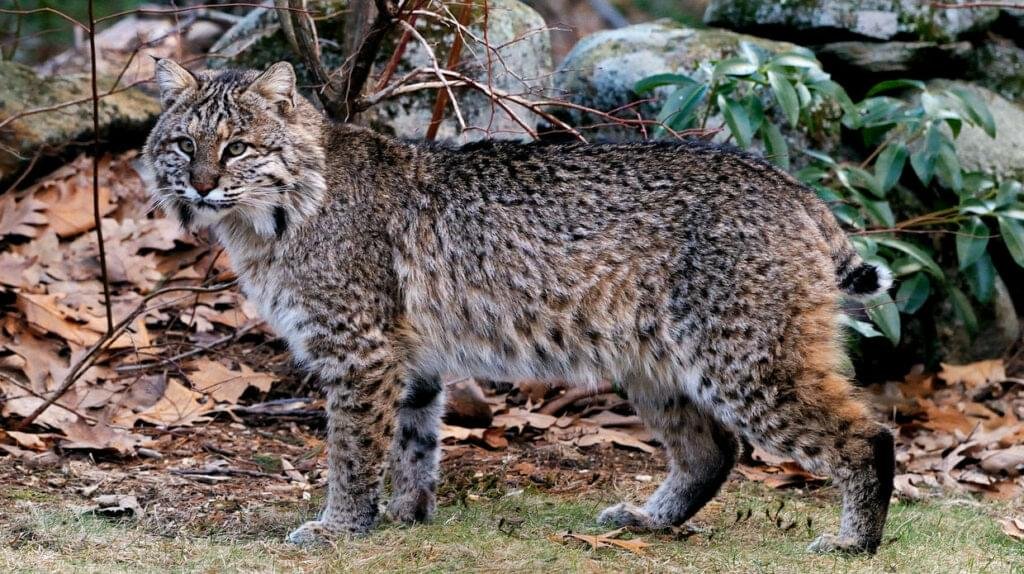Wildlife killing contests are organized events in which participants kill animals in a set amount of time in exchange for cash, prizes, entertainment, or other inducements. Teams compete in judging categories that frequently focus on the number of animals killed, the weight or sex of the animals killed, the specific species killed, or the smallest or largest body or body part of the animal killed. Contests frequently involve betting and conclude with an animal check-in or weigh-in, followed by a party where contest prizes are awarded. The carcasses of the animals are then usually dumped away from public view.
Wildlife killing contests are cruel and have no place in a civil society or in modern wildlife management. Contests usually target native carnivores, including coyotes, bobcats, mountain lions, and foxes, as well as smaller animals, such as squirrels and rabbits. These events can result in hundreds of animals being wiped off a landscape in a single weekend. Such contests are antithetical to the respectful, ethical, and pro-conservation message necessary to ensure the long-term protection of our country’s wildlife.
AWI is working to have these contests prohibited at the state and federal levels. We led the successful effort to ban killing contests in Colorado, and we have also advocated on this issue in Arizona, Maryland, Massachusetts, Nevada, New York, Oregon, Virginia, and Washington. AWI serves on the steering committee of the National Coalition to End Wildlife Killing Contests, which works to raise awareness about the issue, support legislation, regulatory reform, and litigation to ban contests, and advocate for humane wildlife management. As a member of the steering committee, AWI creates educational materials with the goal of ending all contests across the country.
WHY KILLING CONTESTS SHOULD BE BANNED
1. Wildlife killing contests are cruel and contravene hunting principles
Wildlife killing competitions are cruel, barbaric, and wasteful, and they violate basic hunting principles. The very nature of these events, in which participants are motivated by financial rewards to kill as many animals as possible in a set amount of time, increases the likelihood that participants will violate established hunting principles. Such principles generally advocate “fair chase” and condemn waste and indiscriminate killing. Contestants frequently violate the principle of fair chase, using bait and electronic calling devices to attract animals with sounds that mimic prey or distress calls of injured young in an attempt to maximize their chances of winning cash and prizes. The carcasses of the animals are usually thrown away after weigh-in because they are rarely used for food or fur. Furthermore, an uncountable number of animals are orphaned or injured as a result of these events. Killing adult bobcats, coyotes, foxes, and other species inevitably results in the deaths of their dependent young from thirst, starvation, predation, or exposure.
Several state wildlife agencies and officials have recognized that killing contests harm hunters’ reputations. State officials have described the competitions as “slaughter fests” and “stomach-turning examples of wanton waste” that are “about personal profit [and] animal cruelty.”
2. Wildlife killing contests undermine modern, science‐based wildlife management principles and are not an effective wildlife management tool
Wildlife killing contests encourage indiscriminate killing, which is detrimental to effective wildlife population management. Many wildlife populations depleted by unnatural means simply reproduce more quickly due to the sudden drop in competition for resources and changes in social structure caused by the loss of individuals, according to scientific studies. This effect has been well documented, particularly for coyote populations, which are common targets of wildlife killing contests. Killing contests, according to state wildlife management agencies across the country, do not control coyote population size in the long run. Coyote extinction has a short-term negative impact on the environment because the species is an essential component of healthy ecosystems.
3. Wildlife killing contests do not increase populations of game animals
According to the best available science, killing native carnivores indiscriminately is not an effective method of increasing game species abundance. Many state wildlife commissions and agencies, including those in Illinois, Louisiana, Missouri, New York, North Carolina, Pennsylvania, South Carolina, Vermont, West Virginia, and Wyoming, have concluded that reducing predator numbers will not improve ungulate, small game, and game bird populations. These findings show that the common justification for holding predator-killing contests is scientifically unfounded.
4. Wildlife killing contests do not prevent conflicts with humans, pets, or livestock—and may increase them
Although some argue that livestock depredation requires contests, such contests are ineffective at removing individual, problem-causing animals. Most killing contests target predators in woodlands and grasslands, where human, pet, and livestock conflicts are minimal. According to research, killing predators fragments social groups, increasing the likelihood of livestock depredation. More than 70 conservation scientists concluded in a signed statement that killing contests do not represent the kind of targeted effort required for effective management of livestock depredations, and that indiscriminate killing of predators is likely to exacerbate livestock risks.
SUCCESSES TO DATE
Certain types of wildlife killing contests are prohibited in eight states: Arizona, California, Colorado, Maryland, Massachusetts, New Mexico, Vermont, and Washington. The California Fish and Game Commission prohibited contests aimed at game species, furbearers, and nongame mammals in 2014. The Vermont General Assembly banned coyote-killing contests in 2018. In 2019, the New Mexico General Assembly prohibited coyote killing contests, the Arizona Fish and Game Commission prohibited predator and furbearing species contests, and the Massachusetts Division of Fisheries and Wildlife prohibited predator and furbearing species contests. The Colorado Parks and Wildlife Commission prohibited contests for furbearing species and certain small game species in 2020, and the Washington Fish and Wildlife Commission prohibited contests for species with no bag limit. With overwhelming bipartisan support, the Maryland legislature banned coyote, fox, and raccoon hunting contests in 2021. Other states are considering legislation or have proposed rules to limit wildlife killing contests.
WHAT YOU CAN DO
Please take action to help put an end to wildlife killing competitions. Here are some things you can do:
- The National Coalition to End Wildlife Killing Contests has more information on wildlife killing contests.
- Learn how to advocate for bans on wildlife killing contests by using this toolkit.
- Call, write, or visit your state legislators to urge them to prohibit wildlife killing contests.
- Call, write, and meet with your state’s wildlife agency staff and wildlife commissioners to persuade them to prohibit wildlife killing contests.
- Encourage your city or county council to adopt a resolution or ordinance prohibiting wildlife killing competitions. Examine these sample resolutions for ideas.
- Write a letter to the editor of your newspaper to raise awareness about killing contests and to encourage readers to contact their legislators to express their opposition to the contests.
- Invite stakeholders to a screening of Project Coyote’s award-winning documentary KILLING GAMES—Wildlife in the Crosshairs.
- Help put an end to contests in your state by politely requesting that event hosts and sponsors stop supporting the killing of wildlife for fun and prizes. This toolkit contains sample letters.
- Donate your time and/or money to wildlife protection organizations working to put an end to wildlife killing contests.



